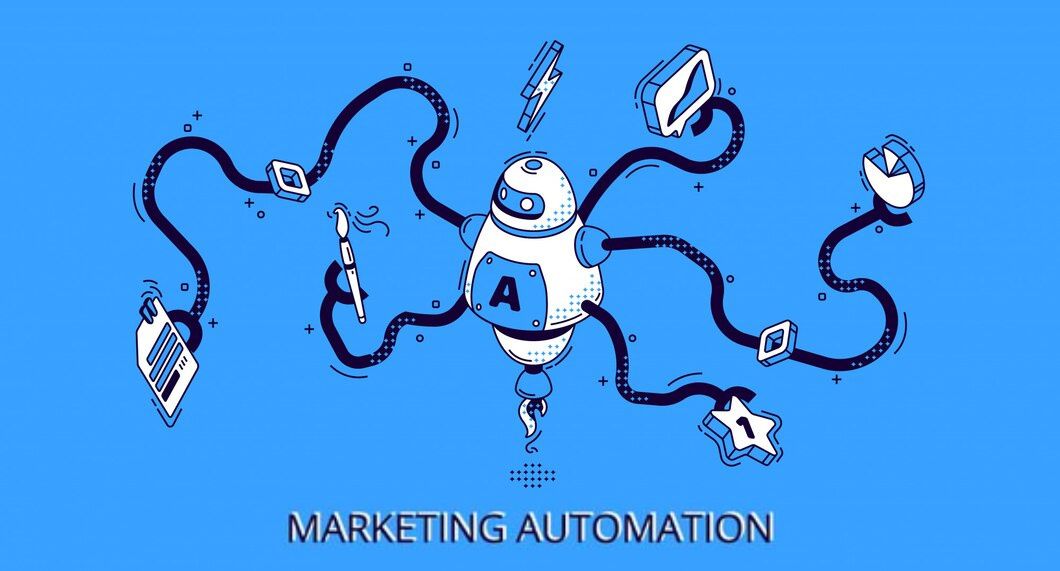What is an Email Marketing Tool?
If you want to grow your business and reach more customers, you need an email marketing tool that can help you create and send engaging newsletters, promotions, and announcements. With our email marketing tool, you can easily design beautiful emails that match your brand, segment your audience based on their interests and behavior, and track your campaign performance with detailed analytics. Whether you want to increase your sales, boost your loyalty, or build your reputation, our email marketing tool can help you achieve your goals. Try it for free today and see the difference for yourself.
An email marketing tool is a software application that helps you create, send, and manage email campaigns. Email marketing tools can help you reach your target audience, increase conversions, and build customer loyalty.
Some of the features that an email marketing tool may offer are:
- Email templates: These are pre-designed layouts that you can customize with your own content, images, and branding. Email templates can save you time and ensure consistency across your campaigns.
- Email list management: This is the process of organizing your contacts into segments based on their characteristics, preferences, and behavior. Email list management can help you send relevant and personalized messages to each segment.
- Email analytics: These are metrics that measure the performance of your email campaigns, such as open rate, click-through rate, bounce rate, and conversion rate. Email analytics can help you evaluate the effectiveness of your email marketing strategy and optimize it for better results.
- Email automation: This is the feature that allows you to set up triggers and actions that automatically send emails based on certain conditions or events. Email automation can help you nurture leads, increase engagement, and deliver timely and relevant messages.
Why do you need an email marketing tool?
Email marketing is one of the most powerful and cost-effective digital marketing channels. According to a study by DMA, email marketing has an average return on investment (ROI) of 42:1. That means for every $1 you spend on email marketing, you can expect to earn $42 in revenue.
However, email marketing is not as simple as sending a mass email to everyone on your contact list. You need to plan, design, execute, and monitor your email campaigns carefully to achieve your goals. That's where an email marketing tool comes in handy.
An email marketing tool can help you:
- Save time and resources: You don't have to spend hours creating emails from scratch or hiring a designer or developer. You can use ready-made templates, drag-and-drop editors, and automation features to create and send professional-looking emails in minutes.
- Improve deliverability and compliance: You don't have to worry about your emails ending up in the spam folder or violating any laws or regulations. An email marketing tool can help you comply with the best practices and standards for email deliverability and data protection.
- Boost engagement and conversions: You don't have to guess what your audience wants or needs. You can use data-driven insights and personalization features to tailor your emails to each subscriber's interests, preferences, and behavior. This can increase the chances of them opening, clicking, and taking action on your emails.
- Grow your business and brand: You don't have to limit yourself to one-time transactions or interactions. You can use email marketing to build long-term relationships with your customers, increase their loyalty and retention, and turn them into advocates for your brand.
How to choose an email marketing tool?
There are many email marketing tools available in the market, each with its own features, benefits, and drawbacks. How do you choose the best one for your business?
Here are some factors to consider when choosing an email marketing tool:
- Your goals and objectives: What are you trying to achieve with email marketing? Do you want to generate leads, increase sales, build awareness, or something else? Your goals and objectives will determine what kind of features and functionality you need from an email marketing tool.
- Your budget and resources: How much are you willing to spend on email marketing? Do you have enough staff or expertise to manage it? Your budget and resources will influence what kind of pricing and support options you can afford from an email marketing tool.
- Your audience and industry: Who are you targeting with email marketing? What are their demographics, psychographics, and behavior? What are the best practices and trends in your industry? Your audience and industry will affect what kind of content, design, and tone you should use in your email campaigns.
- Your integration and scalability needs: What other tools or platforms do you use for your business? How do they work with email marketing? Do you need to integrate them with your email marketing tool? How easy or difficult is it to do so? How fast or slow is your business growing? Do you need an email marketing tool that can scale up or down with your needs?
By considering these factors, you can narrow down your options and find the best email marketing tool for your business.
Conclusion
An email marketing tool is a software application that helps you create, send, and manage email campaigns. It can help you save time and resources, improve deliverability and compliance, boost engagement and conversions, and grow your business and brand.
To choose the best email marketing tool for your business, you need to consider your goals and objectives, budget and resources, audience and industry, integration, and scalability needs.
If you're looking for a professional, reliable, and affordable email marketing tool that can help you achieve all these benefits, check out our website and email marketing tool today!
Share This Post
Tags
Email MarketingRelated Articles
Types of Digital Marketing
Digital marketing is the use of online platforms and channels to promote a product, service, or brand. There are many types of digital marketing
Sales Unleashed: Mastering the Art of Selling Digital Services and Products!
Discover the fundamentals of sales and how to effectively market digital services and products. This comprehensive guide will turn you into a sales pro in no time!
Automating Success: A Startup's Guide to Cutting-Edge Marketing Strategies
Unlock the transformative power of marketing automation with our comprehensive guide tailored for startups. Streamline customer journeys, craft precision-targeted campaigns, and overcome integration challenges. Dive into case studies, explore future trends, and equip your startup with strategies for sustainable growth.
What is a Video Podcast and How Does It Work?
A video podcast is a type of digital media that combines audio and video content. It can be downloaded or streamed online and played on various devices, such as computers, smartphones, tablets, or smart TVs. Video podcasts are similar to regular podcasts, but they offer more visual information and engagement for the viewers. Some video podcasts are recorded live, while others are edited and produced before being released.
Targeted Advertising: A Smart Strategy for Your Business
Targeted advertising is a form of online marketing that aims to deliver personalized messages to potential customers based on their interests, preferences, and behavior. By using data collected from various sources, such as web browsing history, social media activity, and online purchases, advertisers can create more relevant and effective campaigns that increase conversion rates and customer loyalty. Targeted advertising benefits both businesses and consumers, as it reduces the amount of irrelevant and annoying ads, and provides more value and satisfaction to the users.
Related FAQ
No related FAQ.
Say Hello
To Your Dream





